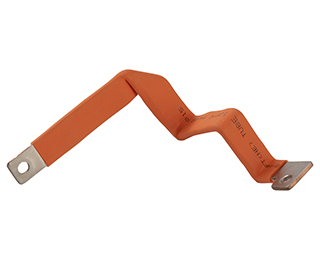2024-11-26 10:49:14
Copper Flexible Busbars, also known as Flexible Copper Busbars or simply flexible busbars, are critical components in electrical systems. They serve as efficient and reliable conductors, providing a flexible alternative to traditional rigid busbars in power distribution networks. While the base material—copper—already offers excellent electrical conductivity and durability, surface treatments can further enhance the performance, longevity, and reliability of Copper Flexible Busbars.

Copper is well-known for its high electrical conductivity, which makes it an ideal material for flexible copper busbars. However, copper is also susceptible to oxidation and corrosion, especially in environments with high humidity, moisture, or exposure to certain chemicals. Oxidation can lead to an increase in electrical resistance, ultimately affecting the busbar’s efficiency and safety. Surface treatments help protect copper flexible busbars from these issues while offering additional benefits like improved durability, reduced maintenance, and extended service life.
Tin-plating is one of the most common surface treatments applied to copper flexible busbars. The process involves coating the copper with a thin layer of tin, which offers several benefits:
Corrosion Resistance: Tin provides a protective barrier that prevents copper from reacting with oxygen and moisture, which can cause oxidation. This is particularly beneficial for copper flexible busbars used in humid or outdoor environments.
Improved Solderability: Tin-plated flexible busbars are easier to solder, making them an excellent choice for applications that require reliable electrical connections. The tin coating ensures a stronger bond during assembly and improves the overall quality of the electrical connection.
Extended Service Life: The tin coating enhances the longevity of flexible copper busbars, reducing the need for frequent replacements or maintenance.
Reduced Contact Resistance: Tin plating helps maintain low contact resistance, which is crucial for efficient power transmission and preventing heat buildup at connection points.
Another widely used surface treatment for copper flexible busbars is silver-plating. Silver is an excellent conductor of electricity, even better than copper itself, and applying a thin layer of silver over the copper base provides the following advantages:
Enhanced Electrical Conductivity: Silver plating significantly improves the electrical conductivity of the flexible busbar. In high-performance applications, where minimal power loss is critical, silver-plated copper flexible busbars ensure maximum efficiency.
Superior Corrosion Resistance: Silver has natural anti-corrosive properties, making it ideal for harsh environments. It forms a protective oxide layer that prevents further corrosion, thereby extending the service life of the flexible copper busbar.
Low Contact Resistance: The smooth surface of silver plating minimizes electrical contact resistance, making silver-plated flexible busbars a popular choice in precision applications where high-quality electrical connections are essential.
Improved Thermal Performance: Silver plating helps dissipate heat more effectively, which is beneficial for copper flexible busbars used in high-current applications.
However, it’s important to note that silver-plated flexible busbars can be more expensive compared to tin-plated ones, so the choice of surface treatment should depend on the specific application requirements.
Anodizing is another surface treatment that can be applied to copper flexible busbars. While anodizing is more commonly associated with aluminium, it can also be applied to copper, providing a range of benefits:
Enhanced Durability and Hardness: Anodizing creates a thicker, more durable oxide layer on the surface of copper, making it more resistant to wear and mechanical damage. This is particularly useful for flexible busbars used in environments with physical stresses, such as industrial machinery or transportation systems.
Corrosion Protection: Anodized copper flexible busbars are more resistant to corrosion than untreated copper, as the anodized layer acts as a barrier to moisture and chemicals.
Improved Surface Aesthetics: Anodizing can also improve the aesthetic appearance of flexible copper busbars, giving them a more uniform and attractive finish. The anodizing process allows for the addition of color to the surface layer, which can be useful for product differentiation or branding.
Environmental Benefits: Anodizing is an environmentally friendly process, as it does not involve harmful chemicals and produces less waste compared to other surface treatments.
The choice of surface treatment for a flexible copper busbar depends on various factors, including the environmental conditions, electrical performance requirements, and budget. Here are some considerations:
For High Conductivity Applications: If maximum electrical conductivity is a priority, silver-plating is the best option. It ensures minimal resistance and efficient power distribution, especially in high-current applications.
For Cost-Effective Corrosion Resistance: Tin-plating is a more affordable option that still offers excellent protection against corrosion and improves solderability.
For Extreme Durability: Anodizing is ideal for applications that require a high level of mechanical strength and protection against physical wear, while still offering some corrosion resistance.
For Harsh Environments: If the copper flexible busbar will be exposed to extreme weather conditions, high humidity, or corrosive chemicals, silver-plating or tin-plating is recommended for enhanced protection.
Surface treatments like tin-plating, silver-plating, and anodizing significantly improve the performance, durability, and longevity of copper flexible busbars. By selecting the appropriate surface treatment, manufacturers and engineers can ensure that flexible copper busbars meet the specific needs of their applications, whether that’s for enhanced electrical conductivity, corrosion resistance, or mechanical durability. When properly chosen and applied, these surface treatments help maximize the efficiency, reliability, and service life of copper flexible busbars, making them an even more valuable component in power distribution and electrical systems.